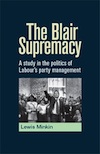Trade unions are in a spot of bother, according to SHEILA BANKS. And Labour is partly to blame. The party needs to find a new way of connecting to union members that taps directly into their workplace experience.
Throughout my working life, I have been an active trade unionist and representative. Since retiring my involvement has continued through the PCS union’s retired members’ network. So I want to look at Labour Party democracy from that standpoint.
 It pains me to say it but trade unions in this country are in bother. Only six million people belong to a trade union out of a working population of 31 million. A significantly higher number have the benefits of working in a unionised workplace and being covered by collective bargaining, while not being members themselves, but this still leaves two-thirds of the workforce non-unionised.
It pains me to say it but trade unions in this country are in bother. Only six million people belong to a trade union out of a working population of 31 million. A significantly higher number have the benefits of working in a unionised workplace and being covered by collective bargaining, while not being members themselves, but this still leaves two-thirds of the workforce non-unionised.
Government action and inaction has largely been responsible for this decline, which is due to our complete submission to the will of global capital. This includes anti-trade union legislation, allowing manufacturing to go into decline, privatisation killing off vast swathes of the public sector, and the general deregulation of employment.
While all of this should be the business of the Labour Party in terms of policy in government, it is really a matter for the trade unions to address. However, if like me, you want to retain and strengthen the links between trade unions and the Labour Party, then it’s important to recognise the present picture.
In the past, trade unions big and small directly sponsored many MPs and Labour members of the House of Lords, from their candidature to the end of their political careers. These were generally, but not exclusively, rank-and-file members of the union honing their politics as they went along. This model gave workers, via their union and the party, recognition and influence in the legislative process.
While this model was in decline, along with the fortune of the unions, it took New Labour to finish it off and bring us to the existing relationship model which can be summarised as “Give us your money but don’t try to tell us what to do with it.”
I’m sure this audience recognises and deplores the elitism in our society, of which the Tory Party is simply a microcosm. That small band of old families and wealth, private schools and Oxbridge – getting on not by what but who you know. The direct result of this is a Tory government with a total lack of understanding of the lives of ordinary people.
Familiar pattern
Sadly, when I look around my party I see a similar pattern. Maybe not many old families, wealth and private schooling, but going from school to studying politics at certain universities, into party internships and then – and I use the term loosely – selection as candidates. The starting point may be different but the outcome is much the same: a total lack of understanding and representation of the lives of ordinary people.
Don’t get me wrong, I do not believe that you have to work down a pit or in a sweatshop to know what it’s like but equally I don’t believe that studying political philosophy and living in and around the fringes of the Westminster bubble can tell you how it feels to be doing three jobs while not know where your child’s next meal is coming from.
While I want MPs who are professional, competent and able to perform on the world stage, this must be tempered by an understanding of people’s lives. Consideration of the impact of policy on people should be integral to the development process, not an afterthought.
Because of the present state of the unions we can’t simply look to return to the old model of sponsorship of MPs and wouldn’t want to, as the world is a very different place. But when New Labour broke the link with the unions they threw out not only the bathwater but also the baby.
I believe we need to find a new model which allows the party to tap into that well of socially and politically savvy workplace reps who have direct experience and understanding of the human condition and who are at the forefront of fighting this government’s austerity programme.
Crucially, I want to add another ingredient. None of the previous models of selecting candidates have done anything to address the under-representation of women. Let’s tackle that as well, shall we?
—
Sheila Banks of the Public and Commercial Services Union is a former president of Leeds Trades Union Council, and a long-term member of the Labour Party.
This is an edited version of a talk given at the Leeds launch of The Blair Supremacy in March.
 The Blair Supremacy: A study in the politics of Labour’s party management, by Lewis Minkin, is published by Manchester University Press. Priced £26.99 paperback. Click here for more information or to buy the book.
The Blair Supremacy: A study in the politics of Labour’s party management, by Lewis Minkin, is published by Manchester University Press. Priced £26.99 paperback. Click here for more information or to buy the book.
See also: ‘Assessing the Blair Supremacy’ by Barry Winter;
‘Blair, Management and Neoliberalism’ by Hugo Radice; and
‘Blair, New Labour and the Party’s Crisis’ by Sarah Perrigo.



2 April 2016
Hi
While Sheila’s broader points about the trade unions should not be lost sight of, here’s a constructive contribution to the discussion about the future of the steel industry from the New Economics Foundation.
http://www.neweconomics.org/blog/entry/port-talbot-bail-it-out-then-make-a-proper-plan-for-uk-industry?&utm_medium=email&utm_source=nefoundation&utm_content=1&utm_campaign=this-week-0204&source=this-week-0204
Barry
31 March 2016
Harry
I think Jeremy Corbyn and John McDonald are doing their best in very difficult circumstances.
Trouble is Corbyn leads a party without a credible economic or industrial strategy and full of MPs like Stephen Kinnock who worship the free market (the lovely Stephen abstained on the Tory austerity cuts) and simply do not believe in a mixed economy.
The MP for Aberavon covering the Port Talbot steelworks was at it again on BBC television this morning blaming everything on the Tories and castigating the Business Secretory, Sajid Javid, for going missing at a time of crisis, while bragging it was left to him to fly to India to have it out with the TATA board. But while his strategy for saving UK steel industry was as clear as mud, he was nevertheless crystal clear that nationalisation was not an option. Brilliant!
So because there is little or no strategic thinking or anything approaching a coherent industrial plan whenever there are pending job losses, Labour MPs seem to run around like headless chickens making lots of noise but not much sense and the end game is always the same. We don’t have to be Mystic Meg to know what’s coming.
You know Harry, they remind me of corporal Jones and private Frazer in Dad’s Army, shouting: “Don’t panic! Don’t panic!” and “We’re doomed. Doomed” while the constituents and communities they claim to represents get shafted every-which-way by the free market system and the plutocrats they wittingly or otherwise really do represent – aka Gordon Brown and his monotonous “No more boom or bust” boast.
But like you Harry, I live and HOPE.
30 March 2016
Ernie : But has not Jeremy now made the correct response ?
30 March 2016
While I agree with most of what Sheila Banks has to say about the decline of the trade union movement and accept that the Labour Party has a lot to answer for in its worship of free markets and failure to support the victims of industrial decline and privatisation. But it must be said also that the trade union movement has done little, if anything, to come up with policies and strategies designed to appeal to and recruit the UK’s atomised and hugely exploited precarious workforce.
The Asset Strippers are Coming.
And when it comes to the crisis of British Steel, it’s been a long time coming and the trade unions and Labour Party are equally complicit in their traditionally reactive and hopelessly inadequate response. I mean, what was the point of Roy Rickhuss, General Secretary of the Community Union, and Stephen Kinnock MP wasting public money (a phone call maybe) flying to India to appeal to the TATA bosses to save an industry losing one millions daily because of overproduction and chineese dumping. You would have to have a brain the size of a pea to think that that was a viable job saving strategy. And if TATA do sell the UK business, how many readers believe that the business won’t be snapped up by some hedge fund and asset stripper and all at the expense of the British taxpayer?
A Non-Strategy
So from my perspective, the main political parties are less than useless. Lots of noise and spin from the Tories about looking at all options, while the MP for Aberavon, Kinnock talking loud about “the beating heart of the community” and “the fight is on”. Likewise on BBC TV (last night) Angela Eagle MP called for “decisive action” to save the British steel industry but refused to mention what this strategy might be or to even consider (despite repeated invitations) the N word.
So nothing about nationalisation or about an industrial strategy that might also include immediate tariffs on Chinese and world-wide steel dumped below cost prices, state aid to help with energy costs and a requirement (no matter how temporary) that all UK infrastructure and public projects use British Steel.
All we get from the likes of Eagle, Kinnock, et.al, is noise and verbal spin designed to cover-up a non-strategy and bankrupt ideas. Career politicians who are happy to spend billions on their own place of work (a museum) but are too craven to even consider taking a vital British industry back into public control.
So again, when it comes to challenging big money and supporting working people and their communities Labour and the trade union movement is found wanting. But we know, don’t we, that while ever they can, Labour will continue to take the trade union shilling and talk-the-talk. But not for very much longer.
No wonder Labour is losing is traditional working class support and is fragmenting every-which-way. No change there then.